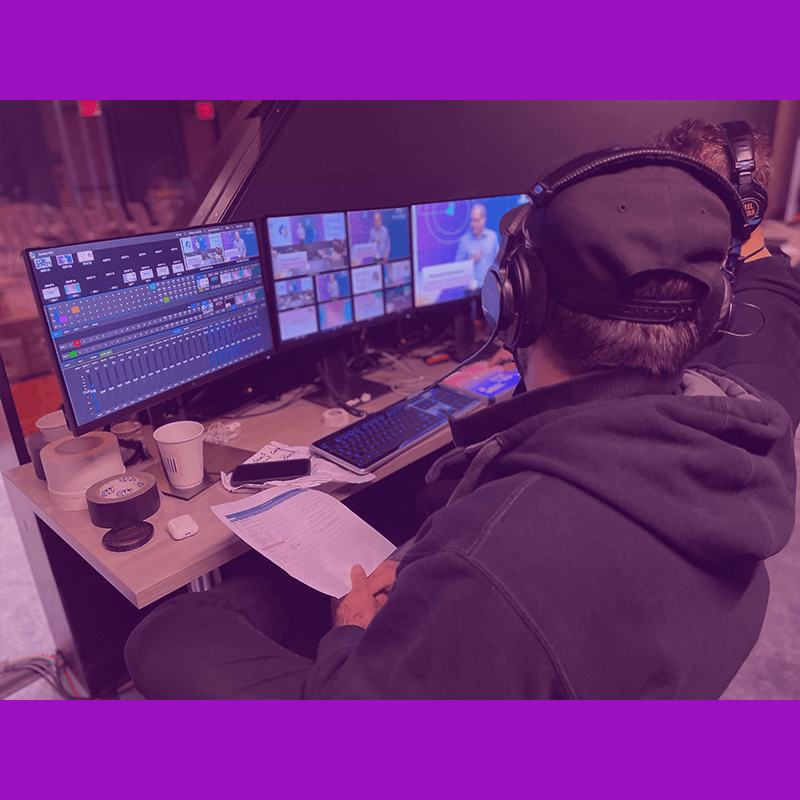There has been a lot written about what event planning and event production is, which is just a fancy way of describing how to put together an event. However, it’s often overlooked as to how to plan or organize an event and well it’s as much an art as it is science. There are several ways an event can go off track:
Poorly drafted timeline
It may sound obvious but you would be surprised how often the timeline is the first thing to go out the window as soon as the event gets started. When the event planning process begins, it’s best to sit down and create a detailed timeline of all the activities- from design to implementation and execution.
Not creating a budget
A budget is the basis of any well-run event. Your budget should encompass all the expenses of the event including venue, labor, branding, live streaming (if applicable) travel, food and entertainment. If this feels too overwhelming, reach out to a professional event planner to help you with identifying these requirements. They can help you create a budget that is realistic and achievable.
Not using visuals
When planning an event, visuals play an important role. Having a clear, well-defined vision of what the event should look like is vital. From color schemes, to choosing seating arrangements, to picking the type of banquet, to designing the invitations- visual decisions can make or break the event and drive engagement.
Not being flexible
Things always go wrong at events. Even if you think you planned every detail perfectly, something will eventually go wrong. Remember, it’s a live event. Expect the unexpected. Having a flexible mindset will help you and your team manage these unforeseen circumstances and keep things moving forward in a positive fashion.
Not having back up plans
If you have planned the event down to every little detail, and something still goes wrong, what will you do? Have a plan B (and C and D) for every little detail. Being prepared will help your team keep calm and deal effectively with any situation that may arise in the course of the event production.
Not having a contingency plan in the event something goes wrong
There is always the possibility something happens in the course of your event. You can mitigate these issues by preparing a contingency plan and sharing it with your team in advance.
Forgetting about the legalities
It’s important to have the right kind of documentation in place, especially if hiring staff or renting equipment. Also, check the event venue’s legal policies regarding music, entertainment, insurance and décor.
Not marketing your event
When planning an event, it’s not just important that everyone attend, it’s also crucial that the right people attend. Before creating your guest list, make sure you have a clear idea of who your target audience is. Once you know who the people are that will attend your event, it will make it easier to plan the right kind of marketing tactics.
Not having speakers that interest your audience
It can be tempting to just select famous celebrities or high-ranking officials as speakers, but if you don’t have an audience that is interested in them, your event will be a disaster. Before selecting speakers, look at your potential audience and make sure they are the kind of people that would be interested in what the speaker has to offer.
Not having Tech Checks
It doesn’t matter if your event is in-person, virtual or a hybrid event. Make sure that you do a thorough check of the venue before it starts, and do a tech check right before it begins. Sometimes, equipment breaks down (that’s why it’s important to have backup plans), and it’s better to find that out beforehand than during the event.
Not having enough staff
An event can go south quickly if you don’t have enough staff to manage it effectively. Prepare enough staff in advance so that if any problem comes up, there is someone there to take care of it. The right production crew goes a long way to ensuring an event is successful.
Not having a post-event survey
When you are planning an event, it can be easy to get caught up in the excitement and overlook the critical components like gathering feedback from your audience. For maximum impact, make sure to do a post event survey. This will help gauge the effectiveness of your event, helping you plan your next event more effectively.
When it comes to event production, there are many mistakes you can make. However, those mentioned here are among the most common. Most importantly, plan in advance. It is important to provide enough time for the planning process. This way, you can avoid last-minute problems. To make sure you have enough time, make sure you give yourself at least 3 months to plan. Planning ahead will also help you find good vendors. Also, be flexible when working with your vendors, which will go along way to a collaborative environment that will make your event a success. Other important tips include letting your vendors know your budget, finding realistic estimates, and considering all costs. Finally, don’t forget to enjoy the process. When planning an event, it is easy to get stressed, but focus on the fantastic experience you are creating for your attendees. However, you should remember to enjoy the process and if you need help with your event production we are always here to listen.



